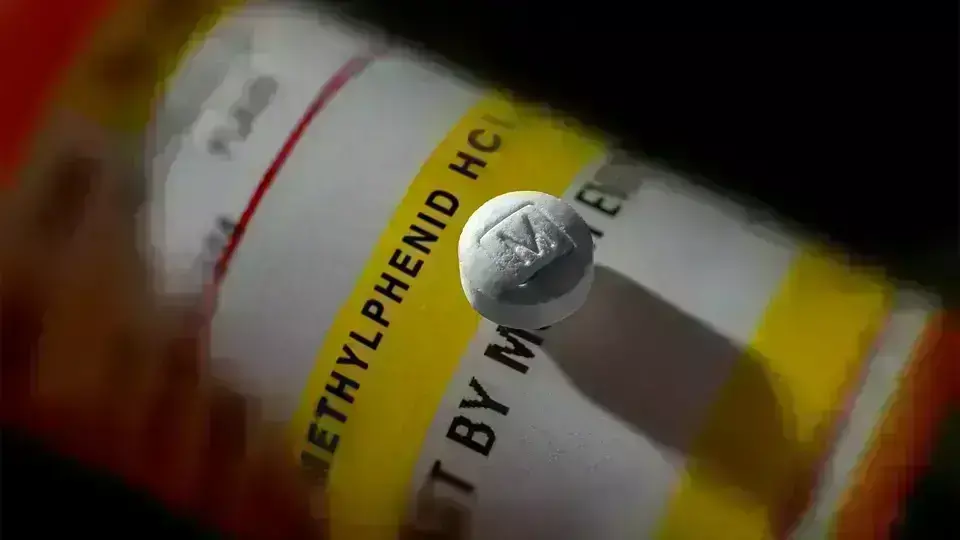- Home
- Medical news & Guidelines
- Anesthesiology
- Cardiology and CTVS
- Critical Care
- Dentistry
- Dermatology
- Diabetes and Endocrinology
- ENT
- Gastroenterology
- Medicine
- Nephrology
- Neurology
- Obstretics-Gynaecology
- Oncology
- Ophthalmology
- Orthopaedics
- Pediatrics-Neonatology
- Psychiatry
- Pulmonology
- Radiology
- Surgery
- Urology
- Laboratory Medicine
- Diet
- Nursing
- Paramedical
- Physiotherapy
- Health news
- Fact Check
- Bone Health Fact Check
- Brain Health Fact Check
- Cancer Related Fact Check
- Child Care Fact Check
- Dental and oral health fact check
- Diabetes and metabolic health fact check
- Diet and Nutrition Fact Check
- Eye and ENT Care Fact Check
- Fitness fact check
- Gut health fact check
- Heart health fact check
- Kidney health fact check
- Medical education fact check
- Men's health fact check
- Respiratory fact check
- Skin and hair care fact check
- Vaccine and Immunization fact check
- Women's health fact check
- AYUSH
- State News
- Andaman and Nicobar Islands
- Andhra Pradesh
- Arunachal Pradesh
- Assam
- Bihar
- Chandigarh
- Chattisgarh
- Dadra and Nagar Haveli
- Daman and Diu
- Delhi
- Goa
- Gujarat
- Haryana
- Himachal Pradesh
- Jammu & Kashmir
- Jharkhand
- Karnataka
- Kerala
- Ladakh
- Lakshadweep
- Madhya Pradesh
- Maharashtra
- Manipur
- Meghalaya
- Mizoram
- Nagaland
- Odisha
- Puducherry
- Punjab
- Rajasthan
- Sikkim
- Tamil Nadu
- Telangana
- Tripura
- Uttar Pradesh
- Uttrakhand
- West Bengal
- Medical Education
- Industry
Stimulant medications used for ADHD during childhood not linked to substance use disorder later

Stimulant medications used for ADHD during childhood not linked to substance use disorder later suggests a new study published in the JAMA Psychiatry.
Possible associations between stimulant treatment of attention-deficit/hyperactivity disorder (ADHD) and subsequent substance use remain debated and clinically relevant.
A study was done to assess the association of stimulant treatment of ADHD with subsequent substance use using the Multimodal Treatment Study of ADHD (MTA), which provides a unique opportunity to test this association while addressing methodologic complexities (principally, multiple dynamic confounding variables).
MTA was a multisite study initiated at 6 sites in the US and 1 in Canada as a 14-month randomized clinical trial of medication and behavior therapy for ADHD but transitioned to a longitudinal observational study. Participants were recruited between 1994 and 1996. Multi-informant assessments included comprehensively assessed demographic, clinical (including substance use), and treatment (including stimulant treatment) variables. Children aged 7 to 9 years with rigorously diagnosed DSM-IV combined-type ADHD were repeatedly assessed until a mean age of 25 years. Analysis took place between April 2018 and February 2023.
Stimulant treatment of ADHD was measured prospectively from baseline for 16 years (10 assessments) initially using parent report followed by young adult report. Frequency of heavy drinking, marijuana use, daily cigarette smoking, and other substance use were confidentially self-reported with a standardized substance use questionnaire.
Results
A total of 579 children (mean [SD] age at baseline, 8.5 [0.8] years; 465 [80%] male) were analyzed. Generalized multilevel linear models showed no evidence that current (B [SE] range, −0.62 [0.55] to 0.34 [0.47]) or prior stimulant treatment (B [SE] range, −0.06 [0.26] to 0.70 [0.37]) or their interaction (B [SE] range, −0.49 [0.70] to 0.86 [0.68]) were associated with substance use after adjusting for developmental trends in substance use and age. Marginal structural models adjusting for dynamic confounding by demographic, clinical, and familial factors revealed no evidence that more years of stimulant treatment (B [SE] range, −0.003 [0.01] to 0.04 [0.02]) or continuous, uninterrupted stimulant treatment (B [SE] range, −0.25 [0.33] to −0.03 [0.10]) were associated with adulthood substance use. Findings were the same for substance use disorder as outcome.
This study found no evidence that stimulant treatment was associated with increased or decreased risk for later frequent use of alcohol, marijuana, cigarette smoking, or other substances used for adolescents and young adults with childhood ADHD. These findings do not appear to result from other factors that might drive treatment over time and findings held even after considering opposing age-related trends in stimulant treatment and substance use.
Reference:
Molina BSG, Kennedy TM, Howard AL, et al. Association Between Stimulant Treatment and Substance Use Through Adolescence Into Early Adulthood. JAMA Psychiatry. Published online July 05, 2023. doi:10.1001/jamapsychiatry.2023.2157
Keywords:
Stimulant, medications, used, ADHD, during, childhood, linked, substance, use, disorder, later, JAMA Psychiatry, Molina BSG, Kennedy TM, Howard AL,
Dr. Shravani Dali has completed her BDS from Pravara institute of medical sciences, loni. Following which she extensively worked in the healthcare sector for 2+ years. She has been actively involved in writing blogs in field of health and wellness. Currently she is pursuing her Masters of public health-health administration from Tata institute of social sciences. She can be contacted at editorial@medicaldialogues.in.
Dr Kamal Kant Kohli-MBBS, DTCD- a chest specialist with more than 30 years of practice and a flair for writing clinical articles, Dr Kamal Kant Kohli joined Medical Dialogues as a Chief Editor of Medical News. Besides writing articles, as an editor, he proofreads and verifies all the medical content published on Medical Dialogues including those coming from journals, studies,medical conferences,guidelines etc. Email: drkohli@medicaldialogues.in. Contact no. 011-43720751


